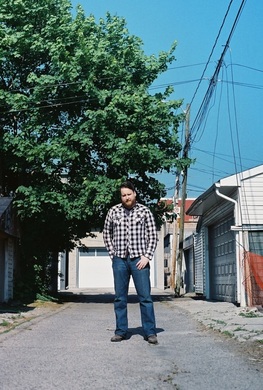 Well damn, I forgot to ask what the "F" stands for. But I can tell you that Andrew F. Sullivan is an effing outstanding short-story writer (hush now, I'm still labouring at the swearing). He's a finder of right words, a turner of phrases, and thoughtful, as his answers and his work show. Not all writers can articulate what they're trying to do, but Andrew has that under control, to his stories' great benefit. They've appeared in The New Quarterly and Grain, among other places. His terrific collection, All We Want is Everything (ARP 2013), frequently takes on people in pain, but with a sharp twist, and was named a Globe and Mail Best Book. His Twitter profile bills him as "Canada's favourite brutalist," but it's a smart, purposeful, even quiet brutalism. And it's often gruesome and funny in the best, blackest way. I'll be lining up for his forthcoming novel Waste (Dzanc, March 2016). Andrew is happy no longer to be working in a warehouse, and I hope he is cranking out more of his interesting reviews, like his last one for the National Post on Garth Risk Hallberg's big fat City on Fire, and more stories. His newest, "Griever," is out in Hazlitt this week, and that's what we talked about. 1. Did you have any alternate titles for the story? What made you pick "Griever"? Did that come to you fully formed at the start, or later? “Griever” came out fully formed. I wanted something more sinister than “mourner,” something close to a ghost, like a banshee but in the flesh. The idea for the story was kicking around in my head for years before I wrote anything down, so there weren’t really too many alternate titles. My titles usually pop up within the first four or three pages of writing and I rarely change them. The great, creeping dread of David Robert Mitchell’s horror film It Follows informed a lot of how the story worked, but with a more mellow, patient pace. I am fascinated with how humans adjust to new circumstances, how the strange becomes the new normal—I wanted the “griever” to become a modern, living ghost. We are never in short supply of bodies. 2. How did you start this story--an image, a word, a general idea? I’d noticed a friend of a friend who was continually posing with distant relatives on Facebook and appearing to collect them like good luck charms in a photo album. Then she began to add friends and friends of friends who were in the hospital… and I am sure she is a great person, but it was unsettling to see it all those photos collected in one place. And even more unsettling when some of these people began to die. Facebook memorial pages should really be their own genre. I have a strained relationship with grief and how it’s expressed publicly. Some people like to feed off the pain of others, I do believe that, they need to feel something, and fresh pain qualifies. Everyone wants a piece. I was watching some ancient Nick Cave videos on Youtube the other day, and people are still littering the comment sections with prayers for his recently deceased son, as if he’ll read them, as if they can fit into themselves into someone else’s private, ageing pain. We don’t want to talk a lot about death in real, physical terms in North America, but we do love to pillage the bereaved for whatever we can get. There is a hunger for it. 3. Could you choose a piece of music to go with it? Oh, I can always do that. Ellie Greenwich with “You Don’t Know” spittin’ truth and heartbreak from 1965, still relevant today. Unrequited love, a little bit of dread and a lot of strings. 4. The story is a little bit Flannery O'Connor--dark, weird, pushing the everyday right to the edge. Can you talk about that, and what you see as your influences? I like to linger along that line, I suppose. I want the “real” world to bump up against the things we can’t explain or are afraid to examine too closely. I think O’Connor is great for young writers to bump into because her work sort of says, “Yes, you’re allowed to get weird. People have been writing strange, brutal stories for a long, long time.” Influence-wise, Harry Crews had a big effect on me when I was 21 or 22 and attempting to take writing seriously. Not so much the quality of his writing as the willingness to get vile and brutal, hyper real, but also still burdened with a lot of tenderness as well. He wrote the books he wanted to write and it definitely shows. Stuff like Car, Body, and especially A Feast of Snakes are singular, vicious little books that rarely pause to reflect. If anything, I think Canadian literature could use a whole lot less reflection. To list off some other influences, I think Toni Morrison does an amazing job with the unreal, David Cronenberg has carried the flag for strange Canadians for decades (The Brood forever!) and then there’s Richard Yates, Barbara Gowdy, Vladimir Sorokin, Evelyn Waugh, Dorothy Allison, Jeff Vandermeer… the list can get long. 5. In many of your other stories (in All We Want is Everything, for instance), you often write about ruin, despair, crisis. That subject remains here, but it has turned somewhat. Do you think your focus is changing? No, I think I will continue to barrel directly down the maw of all that’s awful and unmade. I’m looking for characters that do the best to make their own light with limited tools and resources at their disposal. I think things will get weirder if anything. More surreal, more uncomfortable, but hopefully grounded in vivid characters engaged in real, volatile relationships. I don’t actually have a negative view of the world and I would like to say I am an optimist. If someone tells me they’re a realist, it’s depressing. You end up missing out on a lot of the fun of being alive—the unknowns. Imagine believing you know how everything works. To be a realist, to write “realism” isn’t something I am interested in pursuing. My novel Waste is coming out in March 2016 and it’s a nasty, brutal hash of Southern Ontario urban legends, 80s skinhead failures, ZZ-Top killers, and an escaped zoo lion. All true elements, but splintered and then bound back together with duct tape. Waste isn’t “realism” but I don’t think many of my stories are either. The next story collection is already complete and packed with love affairs consummated in alien tractor beams, Mennonite runaways who walk on water, nightmare hotlines and one hundred clones of Michael Jordan. No one is really happy, everyone is crumbling, but no one has surrendered. 6. The underpinning here is love, mainly of the unrequited sort. The narrator latches on to the lively, beautiful, funeral-hopping Candace. I'm interested in your ideas about how your characters try to save themselves. I suppose I can blame latent Catholicism for that. I’m interested in the past and how it pursues you; how it must find a way to coexist with the present to find any peace. There’s the idea that we are all damned in the first place, so any story is going to have some redemption either denied or attained by the end. I think my characters often do try to save themselves through action, through kindness toward others, through righting old wrongs, but I also believe a lot of that cannot be done. Mistakes are writ large and difficult to erase. The past is heavier than we imagined. To save themselves, my characters often risk pulling someone else down with them. 7. I love any story that shows preoccupation with teeth, as this one does. Where did that image come from here? I think perfect teeth are a relatively new phenomenon we’ve only become acclimatized to recently. Watch enough old news footage on Youtube and you’ll be greeted by a wide variety of dental arrangements. To me, perfect teeth still remain unsettling—professionally whitened until almost blue, straightened and re-straightened again—truly surreal. Candace almost operates as a low-level vampire in this story, a quiet fabled creature. The clues are in the pieces like her teeth—she is just too polished, too kind, too prepared. And she always needs to feed.
0 Comments
Well! Here's the beautiful cover of the paperback edition of All True, new in stores and online (at Chapters.ca and Amazon.ca, for instance). Also happy to say that US edition will be out with Ecco / HarperCollins this summer. That cover coming soon.
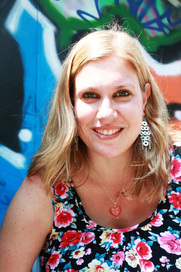 Danila Botha is very good at titles. Her first book was Got No Secrets (Tightrope 2010), and her third, another collection called For All the Men (and Some of the Women) I've Known, will be out next September with Tightrope also. She's already at work on a graphic novel, The World is Dead and I am Full of Joy--and did I mention she has a small baby? Meanwhile, her first novel, Too Much on the Inside, was published this spring (Quattro). It's full of energy, enthusiasm, and compassion, like its author. When we met online and I was feeling especially pitiable, she was instantly offering to mail me flu remedies! Danila seems to have bottled youth in this book, with its four narrators, Nicki, Dez, Lukas, and Marlize, all facing Toronto as relative newcomers trying to deal with their prior lives (It might have been titled The Way We Live Now, a la Trollope). As you'll see from the commentary below, these are powerful voices, fizzing and competing to be heard. Danila herself grew up in South Africa and moved to Toronto at 14, and her experience is part of the book's sincerity and strength. 1. Did you have any alternate titles for the book? What made you pick Too Much on the Inside? Did that come to you fully formed at the start, or later? The title was actually one of the first things that I was sure about. When I lived on Queen St, I heard a great song by the rapper Princess Superstar, (a collaboration with the singer Beth Orton) called "Untouchable Part Two" (*sorry, no video or online version available!). The words in the chorus are: “Sometimes I wear nothing on the outside / because there’s too much on the inside / the bouncer wouldn’t let me in /he said my emotions were to close to the skin / and sometimes a touch can feel like a cut / turn me off / turn it off.” The concept fascinated me: of being unreadable, of showing absolutely no emotion or thought because of the incredible intensity of everything a person is thinking and feeling. Later, inspired by this I wrote the opening scene of the book, where Nicki talks with a certain weariness, about how much easier it is to listen to other people share their stories, and be a listener, rather than share her own. I also created the character of Marlize, who has been through some of the worst things imaginable, but deals with them through meticulous (and probably unhealthy) compartmentalizing around this idea, too. With Dez and Lukas, I also liked the idea that they were capable of behaving very differently, and feeling very differently to they way they presented themselves on the surface. I also read a great short story by Cathleen With, called "Marvellous Madam Mim," from her wonderful collection, Skids. There was this great line: “I have all this stuff welling up in me, and this stuff to say and I can’t get it out, it all seems so important. And then when it bunches up like that, up against my front teeth, itching to get out, I just get stuck. They don’t know I have too much to say, that’s why.” It really it reinforced in my mind that my original concept, and the title was the right fit for the book. 2. How did you start this book--an image, a word, a general idea? I started seriously writing it when I was living in Halifax. I was taking a bus, and I started to this friendly guy from the Annapolis Valley, who told me a terrible story about his past. He was so affable, and warm- yet had assault charges from when he was a teenager, and wasn’t able to see his ex, and his daughter. It broke my heart, and I wanted to tell that story. When I was living in Halifax, I quite inspired by the geographic beauty- being surrounded by water, the warmth and down to earthiness of the people, the food the arts and writing community. I also missed Toronto - the multiculturalism, the endless possibilities, neighborhoods like Queen Street West, and Parkdale, Chinatown and Kensington, St Clair West - and I think a lot of that crept into the story. I think Queen Street was almost the fifth character in Too Much on the Inside. In terms of South Africa, I’d always wanted to write about the social realities of it, the crime, rape, the AIDS rates. There are writers who have written about it with incredible skill, JM Coetzee, in Disgrace, for example, or Kevin Bloom in Ways of Staying. I do think that as a woman, one’s perspective and understanding of these things is different, and I felt like I really needed to try to write about it. I was also interested in what happens to people after they experience such terrible things. I was consumed with the question of how someone finds the strength and courage to keep living after being attacked, or losing family members. I had also lived in Israel and wanted to explore some of the issues I’d observed- in terms of religion and cultural identity and nationalism and how messy and complicated those feelings are. I have a lot of friends from Brazil whose stories were fascinating (I have friends from all over the country, but Belo Horizonte sounded especially beautiful) and I really had a strong desire to explore the culture more. 3. Could you choose a piece of music to go with this book? Wow, I love this question. I listened to a lot of great musicians and albums when I wrote the book. Can I make a whole soundtrack? :) It started with the song "Doll Parts," by Hole. When I was doing the initial notes, and the first draft, I listened to Live Through This a lot, and that line, “I fake it so real / I am beyond fake” stood out in my mind. Metric, I think, are a very Queen St band. I love all of their albums, but especially their first one, Grow Up and Blow Away. So many lines - “Hush don’t explain / when you water down my name” (from "White Gold," which I thought of a lot with Nicki) “I don’t want to die / living in a high rise” (from "Raw Sugar," which made me think of Lukas), and “Choose the highest bidder / was my answer when they told me I was up for sale” (from "Soft Rock Star," which made me think of Marlize). For some reason, I often listened to the Clash when I wrote Lukas’s scenes; I remember the supermarket scene actually being inspired by "Lost in the Supermarket."And for Dez, aside from some great Brazilian bands that my friends recommended, like Ovos Presley (and other bands he talks about liking), I listened to Everclear’s "Local God" (and the whole Romeo and Juliet soundtrack for the early days of his relationship with Marlize). I also listened to every album by the singer/songwriter Simon Wilcox. Her lyrics are these perfectly succinct, emotionally precise pieces of poetry. In "Right Ride", from her Smart Function, she writes “I’ve got to go / I need to know /d id you love the right girl / and what are you going to do?” I listened to it as I wrote and edited the scene when Marlize finds out that Dez is married. There were other things I listened to a lot, Nelly Furtado’s second album, Folklore, and K’naan’s The Dusty Philosopher. There’s just a lot of sounds and lyrics that make me think of the multiculturalism of Toronto and the immigrant experience. The Norwegian singer-songwriter Sondre Lerche is also a master at writing about relationships. I love his song "You Know So Well," so much: “There is one thing I know / it goes like this / when I’m down and out / it’s you I miss.” When I wrote about Israel, I listened to two of my favourite albums from when I was a teenager: Berry Sacharof’s Negiot (his voice is as comforting as sliding into a warm bath) and Eviatar Banai’s Shirei Tiyul. For writing about South Africa, I listened mostly to the Brixton Moord en Roof Orkes, Chris Chameleon (his album Ek Herhaal Jou is just perfection) Buckfever Underground, and a bunch of kwaito mixes that a friend made me. 4. You have four main characters, Marlize, Nicki, Dez, and Lukas, all from different places and now living in Toronto. They're distinct voices, but they read as different facets of one person in a way. I'm interested in your thoughts on that. What a great insight. I hadn’t thought of that, but I can see what you mean. I think we’re all capable of being a lot of different things, and sometimes it’s our life circumstances that bring certain qualities or reactions out of us. A lot of Marlize’s guardedness, versus Nicki’s openness, say, is a result of circumstances (cultural norms, life events, choices, social expectations, etc) that were out of their control. They’re almost like two extremes, who together are a complete person. I know what you mean-it’s a really interesting observation. 5. Speaking of voices, how did you decide to include some dialogue in Portuguese, Afrikaans, and Hebrew? I think it was important to include the languages. I wanted the character’s voices to seem as authentic as possible. I speak Hebrew, for example. When I spoke to some people who were living there about their stories for my research, I did the interviews in the languages, and made all my original notes that way. I remember being worried about getting translations exactly right, and the tone right. I chose the phrases that I think really give people a sense of the cultures, the humour, the world view - and then also some that didn’t translate as well, because I think that’s such an important part of learning a new language, and those kinds of struggles, when you so desperately need to express yourself, but the connotation or the meaning is momentarily unclear (the scene, for example,when Nicki says, "I have a clue," is really a direct translation from Hebrew. I could just imagine the intense frustration). I also speak Afrikaans. I remember making my original notes in that language was helpful because it brought back references to places and names and ideas, which was important in thinking about Marlize’s childhood, for example. For the Portuguese phrases, I relied completely on my friends from Brazil. They were of unbelievable help to me - they sent me lists of phrases and slang for every phrase I asked to be translated, and they were immensely helpful with regional slang and accent. I wanted Dez to really sound like a person from Belo Horizonte. (His use of the word "ouai," pronounced "why," for example, or his offering Marlize "a little coffee," is apparently very region-specific.) I can never thank my friends enough for pointing these things out, I never would have known about them. 6. Violence is a major part of several characters' lives. Do you think the book gives any answers on how to live with it? That’s a great question. I felt it was very important to reflect the social realities of life as honestly and realistically as I could. I think in writing about South Africa, for example, or Israel, it’s impossible to avoid the issue of violence. The question of how to live with it was absolutely what I wanted to explore, more than anything. The characters are all able, through sheer will, to keep moving, to keep pushing forward, travelling and studying and working and trying to connect with people. Towards the end of the book, Marlize tells Nicki that she feels that she simply has to try. I guess, on some level, I think that no matter what we experience, we have to keep going. Still, I find that compulsion and strength remarkable and inspiring. The women I interviewed from South Africa, who’ve been through similar things to Marlize, but are somehow still able to live their lives are incredible, as are women who’ve been through relationships like Nicki’s. I have more admiration for them than I can even express. 7. The book is episodic, moving through backstories, upheaval, and peace. As you wrote, did you have a sense of its general direction--where you wanted it to get to all along? That’s such a cool way of describing it, thank you. I did have a sense of general direction, for sure - but because it takes place over a year, a lot was added in later. For example, I knew that Lukas and Nicki would be in an unhealthy relationship, but the physical violence made up the last scenes I wrote. The final closing scene with Nicki and Alon was the very last scene I wrote, at the encouragement of my great editor Sandra Kasturi. 8. The book is also very sexy in places, like Ayelet Tsabari's. Do you find sex scenes easy to write? Wow, I love the comparison to Ayelet Tsabari, thanks! Her writing is really fantastic. The truth is, I think they’re so important, but I find it hard to make them literary, and not gratuitous for sure! They are fun to write (and they’re so necessary- they give you such an important sense of the relationship, and the connection between people and how they think of each other). I read a lot of other people who do it well. Ayelet is great at it - and you know who else is fantastic? Russell Smith. I remember studying Girl Crazy to figure out how he did it so beautifully. Hanif Kureishi and Tamara Faith Berger are amazing at it too. This week I reviewed Kevin Hardcastle's new story collection, Debris, for the National Post (I also I interviewed Kevin here on Storybrain about one of his stories a while ago). The book is such a good read, and it's got me thinking about fighting, damage, and survival as I work on some of the more violent scenes of the sequel to All True.
 Francie Greenslade is a master of connection. In her autobiographical books, A Pilgrim in Ireland: A Quest for Home and By the Secret Ladder: A Mother's Initiation, she makes sense of her own life, and manages to paint a huge, universal canvas at the same time, bringing up everything from rootlessness to motherhood. She's also a thoughtful, honest, and very funny person. We were hired at Okanagan College at the same time, and I sat next to her at our first faculty meeting, awed by her ideas about teaching--she came alive when she talked about how to encourage young writers. I also loved her beautiful copper hair! She's since taken on fiction, and is now working on a novel about a child of the sixties, an idealistic young white woman married to an Indian. They live a subsistence lifestyle by choice, on a farm with no plumbing, no electricity, no phone. Inevitably, these back-to-the-landers come face-to-face with the circumscribed worldview of rural communities everywhere. As soon as Francie finalizes the title, I'll pass it on. Her first novel, Shelter, about two sisters growing up in the 1970s in BC's Chilcotin, was Knopf Canada's New Face of Fiction pick for 2012. It was published in various countries and received outstanding reviews--Bobbie Ann Mason says, "The longing for a lost mother has rarely been expressed so soulfully." It's a broad, beautiful book (I've been wanting to go and see Potato Mountain since I read it), and I'm glad to have had the chance to ask Francie more about its underpinnings. 1. Did you have any alternate titles for the book? What made you pick Shelter? Did that come to you fully formed at the start, or later? When I wrote the first draft of the novel not long after my mother died, I was calling it Hard Rain. I wasn't happy with it, but it was a phrase from a Bob Dylan song I liked, so I used it as a working title. Strangely, the German edition of Shelter came out with the title Der Dufts Des Regens, which I had not chosen myself, but I discovered to my surprise means The Scent of Rain. Some sense of that original title must have seeped into the story. Shelter began to seem like the only choice for the title. The themes so obviously revolve around various types of shelters, both physical and spiritual. But the main idea came to me because it's supposed to be the first priority in a survival situation. 2. How did you start this novel--an image, a word, a general idea? It's hard to sort out exactly where the novel began, but I'd say it began with the place, the Chilcotin in the interior of British Columbia, where my husband, David, spent some time living in a cabin as a child. When we first met, we took a road trip up there to see the places he remembered. The land up there is wild and beautiful, and can also be dangerous. The people who live there seem to me to have a fierce attachment to the place. The small talk I heard was about animals they'd seen or things that had happened in the bush. It made sense to me. I felt grounded, in a very real sense. We camped out of the back of David's Volkswagen Scirocco, since we didn't have money for things like a tent or sleeping bags. That wasn't strange there. People would go out to the bush with a tarp and axe in the back of a truck, sleep in a make-shift lean-to in the trees. The places we camped are in the book. The Chilcotin, and the comfort it gave me, became intertwined with David's stories about his single mother, and with the grief I was still reeling from over the death of my own mother. When the two sisters, Maggie and Jenny, began to visit my imagination, the story took shape: the physical loss of a mother, the refuge of the land. 3. How did you find the sense of an ending--did you know when to finish? Did the ending remain the same through different drafts? I knew from the beginning what had happened to Maggie and Jenny's mother, but I didn't know how it would end for them. The characters themselves led me there. Vern, Uncle Leslie, Rita, Jenny, and Maggie herself -- they surprised me with their resilience. They really did become more than what I imagined for them. I remember Eden Robinson describing her characters walking around doing things that she didn't expect. I found that was the case with these characters. I sometimes catch myself wondering what they're doing now. 4. Could you choose a piece of music to go with the book? Well it seems incongruous in a way, but I listened to a Mozart piano concerto over and over when I was writing Shelter. It's Piano Concerto #17, with Alfred Brendel playing (*this linked YouTube version is played by Bernstein). It's the most heartbreakingly beautiful thing I've ever heard. I was interested, and still am, in the intertwining of pain and beauty. 5. Did anything in the story grow out of autobiographical experience? Did writing it change your view of the past? I think that everything in my writing comes down to an autobiographical experience in one way or another. I have an obsession with making sense of things. That's probably a prerequisite for being a writer. In the case of Shelter, I was wrestling with the realization, after my mother died, that I had a very narrow and self-centred view of her. I saw her only as my mother, not as a woman. I wasn't old enough when she died to have made that leap that I think is probably central to becoming an adult. Maggie also comes to realize, in a painful way, that she didn't really know who her mother was. 6. The book is permeated with a sense of paradise lost. Can you talk about that? That's an interesting observation. When I visited Random House, my Canadian publisher, as the book was coming out, I noticed that people were referring to it as a coming-of-age story. It may be strange that I hadn't thought of it that way. I think that for Maggie, her happy childhood is the paradise that she's lost. The land, though, is the constant for her and it's a kind of paradise found. She comes to recognize what it gives her and how it important it is to hang on to. 7. The main narrative is Maggie's, but Jenny's story of teenage motherhood, though shorter, stands out very strongly. What made you decide to write this part in the form of letters? It's always difficult to introduce someone else's story when you're writing a first person narrative. But when I was a teenager, letters were the way that I communicated deeply with many of my friends. I even remember the strawberry notepaper I had (scented!). I covered pages and pages and mailed off these thick pink letters to my friends who lived 40 miles away from me (in Winnipeg; I'd moved to a farm). I wanted the intimacy that letters have, the way we (or at least I) write things we might not say in person. Like many sisters, Jenny and Maggie define themselves partly by the way they are different from each other. But the letters bridge that in some way, I think. The last time I was at the Banff Centre for the Arts, I was working on the first draft of All True. It was a few years ago, and it was May, and snowing, as it was on my first day here this past week. I was very happy to have been assigned the Henriquez studio in the woods again. It's a boat, an actual boat, the Elsie K., suspended in the forest, and I think it's about the best place on earth for writing. I get more written there in a week than I do in a month anywhere else (I worked on many of the stories in The Old Familiar there). So I'm happy, too, to report that the draft of the sequel is coming along.
I hoped for bears but saw none, though I never have. I did see Tanya Tagaq's incredible performance of Nanook of the North at the Centre. I've never seen someone so completely possessed, visibly transformed by what she does onstage. She's physically small and soft-spoken, but the way she sings is the way I hope to write characters' voices--raw, loud, intense, personal. She's a master. The next day, I heard loud, joyful singing in the trees outside the studio. I opened my door to find a tiny girl on the step asking to come in. Turned out to be Tanya Tagaq's little daughter, and the singing was her ma. They both had a visit in the boat, and we talked about the weird, tangible magic of this place in the Rockies, and I just about managed to contain myself. When the Shuswap BookFest organizers asked me if I would interview Elizabeth Hay onstage on October 2, I said yes, yes, a thousand times yes!
Without really thinking. Though I love doing the Storybrain interviews here on the blog, I've never done a live performance. But hey! Elizabeth Hay, CanLit superstar, whose work I've admired since I stumbled on her story collection, Small Change, years ago. I figured I'd wing it. Until I was knocked sideways by a ghastly bug and lost my voice for more than a week. I lay around and read her new novel, His Whole Life, which centres on a small family moving between New York City and a summer cabin in Ontario against the backdrop of the 1995 Quebec referendum, and reread earlier ones. Still croaky but on my feet, I went to the first night of the festival to hear Eleanor Wachtel, Queen of the CBC, talk about her 25 years of interviewing on Writers and Company and Wachtel on the Arts. Talk about tough acts to follow. When Eleanor said she has at least 20 pages of questions and prompts for a one-hour radio interview, and how much more difficult and unpredictable live interviews are, my heart sank. I went home and looked over my three pages, and didn't sleep much. I should have slept better. As it turned out, and in spite of germs and rain, Elizabeth makes live interviewing very easy. She's warm, funny, and very generous in her talk, letting us into her writing process and her thoughts on fate, politics, parenthood, and envy. I didn't look much at my notes--our conversation took its own turns, from writing difficult and unpleasant characters (Janet the Jerk, I'm talking about you), to Pierre and Justin Trudeau as Shakespearian figures. The hour flashed by, and the terrific audience had plenty of smart questions afterwards. Shuswap BookFest, I'm inviting myself back for 2016. |
ALIX HAWLEYI'm the author of My Name is a Knife, All True Not a Lie In It, and The Old Familiar. Archives
February 2021
Categories |
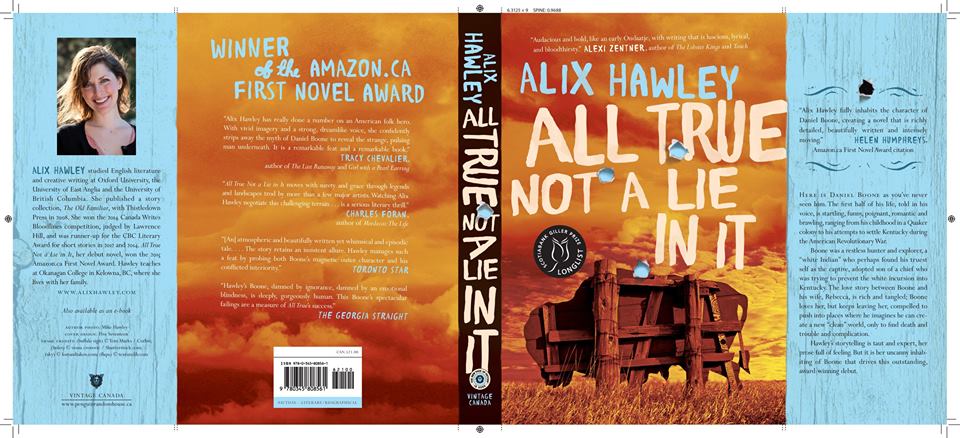
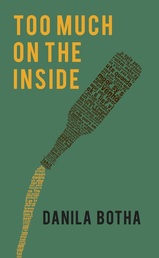
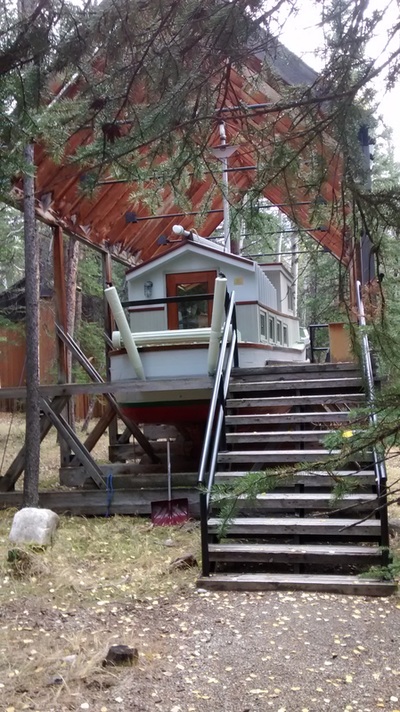

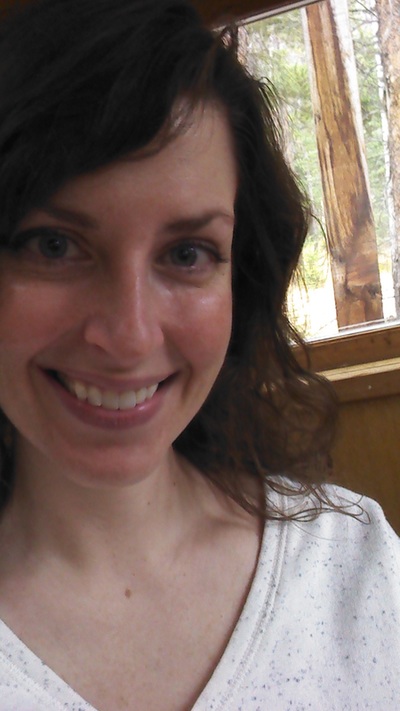
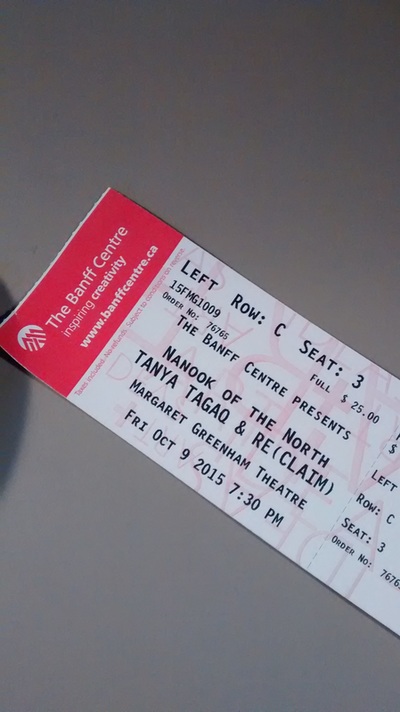
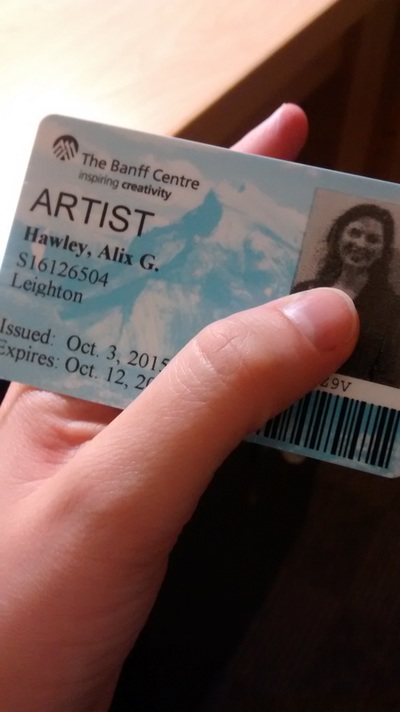
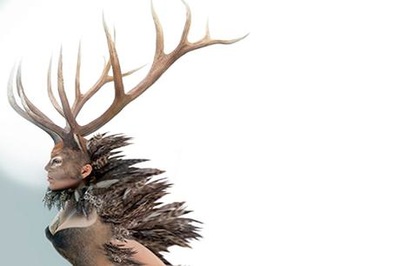
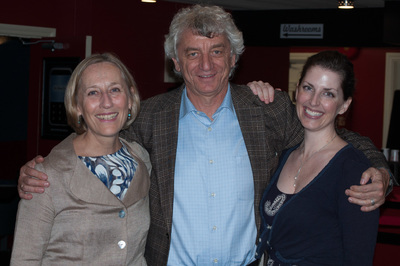
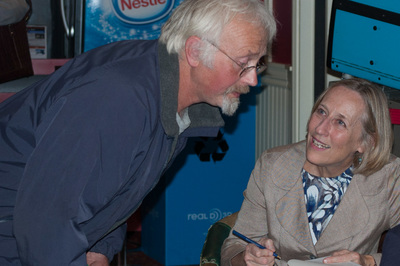

 RSS Feed
RSS Feed
